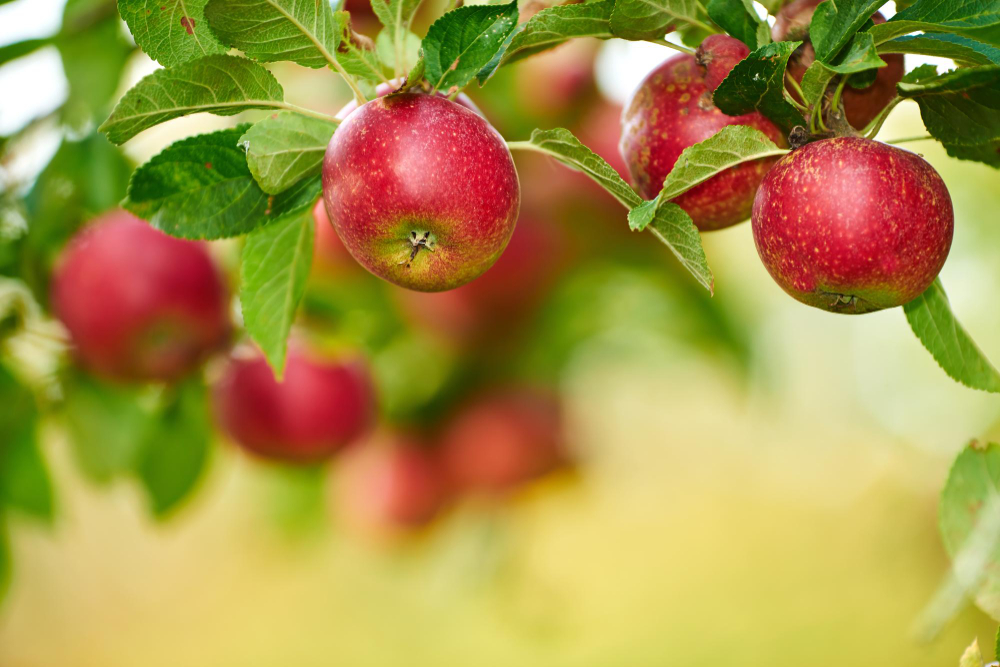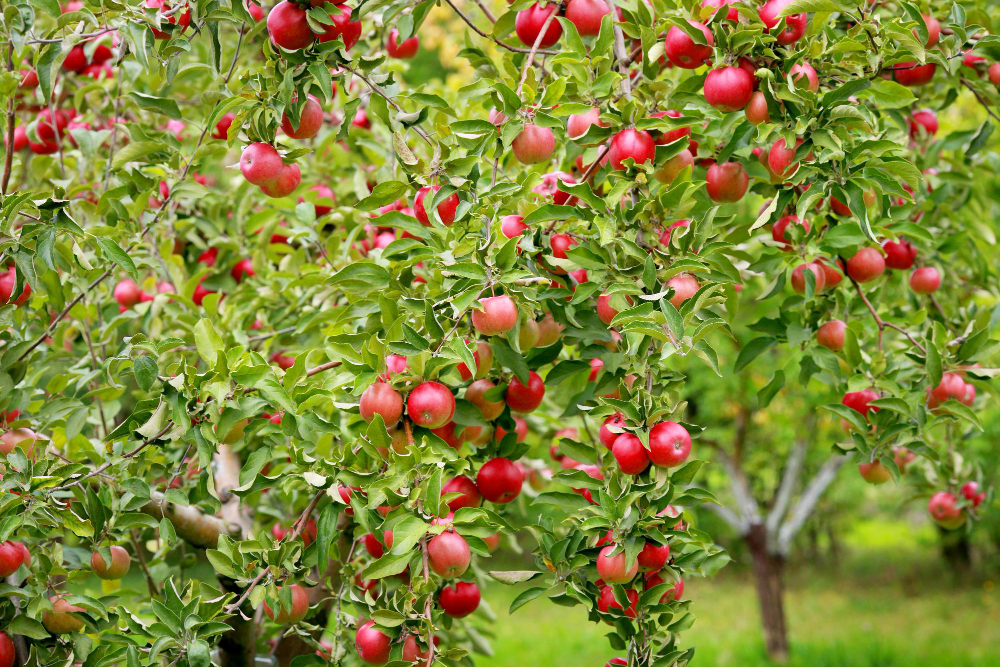Atulya Vanam's Mighty Wholesome Apple Tree: Nurturing Health Through Healing Traditions
The Apple tree (Malus domestica) stands as an emblem of wholesome nourishment and vitality, offering a diverse range of therapeutic benefits through its leaves, fruit, bark, roots, and flowers.
In this comprehensive blog, we embark on an enlightening journey to explore the versatile uses of the Apple tree across various medical systems, including Modern Medicine, Ayurveda, Unani, Homeopathy, Siddha, and its multifaceted applications. Additionally, we delve into the captivating varieties of apples available in India.
Medicinal Value
Modern Medicine:
Fruit (Apple): Apples are rich in dietary fiber, vitamins, and antioxidants, contributing to heart health, digestion, and overall well-being.
Phytochemicals: Apples contain phytochemicals like quercetin that have potential anti-inflammatory and antioxidant properties.
Ayurveda:
Fruit (Apple): Ayurveda acknowledges apples for their sweet and astringent taste, suitable for balancing pitta and vata doshas.
Apple Peel: Ayurvedic remedies use apple peel for its potential to support digestion and manage certain health conditions.
Unani:
Fruit (Apple): Unani recognizes apples as a source of energy and vitality, appreciated for their nutritional value.
Homeopathy:
Fruit (Apple): Apples may be included in homeopathic preparations targeting specific symptoms or health concerns.
Siddha:
Fruit (Apple): In Siddha medicine, apples are believed to enhance digestion and support overall vitality
General Uses
Nutrient-Packed Snack: Apples are a convenient and nutritious snack, known for their vitamins and minerals.
Culinary Marvel: Apples are used in a variety of culinary creations, from salads to desserts.
Natural Sweetener: Applesauce and dried apple slices are used as natural sweeteners in cooking and baking.
Ornamental Value: Apple trees’ blossoms and fruit add to their ornamental appeal in gardens and landscapes.
Varieties of Apples in India
Himachal Apple: Known for its sweet and crunchy texture, Himachal Apple is one of the most popular varieties in India.
Kashmiri Apple: Recognized for its rich flavor and aromatic profile, Kashmiri Apple is often enjoyed fresh.
Shimla Apple: Characterized by its crispness and balanced taste, Shimla Apple is a favored choice for snacking.



More about Apple
Apple trees (Malus domestica) are iconic and fascinating trees with a multitude of extraordinary qualities. Here are some intriguing facts about apple trees:
- Ancient History: Apples have a rich history dating back thousands of years, and they are often associated with myths and legends.
- Diverse Varieties: There are thousands of apple varieties, each with distinct flavors, colors, and textures, catering to various culinary preferences.
- Nutritional Powerhouse: Apples are packed with dietary fiber, vitamins (such as vitamin C), and minerals (like potassium), contributing to overall health.
- Culinary Delight: Apples are used in an array of culinary creations, from pies and crisps to salads and sauces.
- Orchard Beauty: Apple orchards are a picturesque sight, with rows of trees laden with colorful and tempting fruits.
- Symbolism: Apples have cultural symbolism, often representing knowledge, temptation, and the seasons.
- Apple Blossoms: The delicate and fragrant blossoms of apple trees are celebrated for their aesthetic appeal and potential for bee pollination.
- Biodiversity: Apple trees provide habitat and food for various wildlife, including birds, insects, and mammals.
- Longevity: Apple trees can live for several decades, producing fruit throughout their lifespan.
- Ornamental Value: Some apple tree varieties are cultivated for their ornamental blossoms and foliage, enhancing gardens and landscapes.
- Cider Tradition: Apples are a key ingredient in cider production, ranging from sweet to dry and sparking to still.
- Heirloom Varieties: Many unique and flavorful heirloom apple varieties are cherished for their historical significance and distinct flavors.
- Pollination Partners: Some apple varieties require cross-pollination for fruit production, fostering ecological partnerships.
- Fall Harvest: Apples are synonymous with autumn, as their harvest season marks the transition into cooler weather.
- Traditional Medicine: Apples and apple products have been used in traditional medicine for potential digestive and detoxification benefits.
- Global Cultivation: Apples are grown worldwide, with different regions producing unique varieties adapted to their climates.
- Modern Innovations: Advances in apple cultivation and breeding have led to the development of disease-resistant and novel varieties.
These extraordinary facts highlight the cultural, culinary, and natural significance of apple trees. From their historic symbolism to their diverse culinary uses, apple trees continue to be celebrated for their role in both human culture and natural ecosystems.
Conclusion
The Apple tree, an epitome of nourishment and vitality, transcends its role as a bearer of fruit. Its leaves, fruit, bark, roots, flowers, and diverse applications interweave with a rich spectrum of medical systems and cultural practices. From Ayurveda’s timeless wisdom to modern medical affirmation, the Apple tree’s virtues flourish. By embracing the harmony of traditional insight and contemporary exploration, we unveil the countless ways in which the Apple tree enriches our lives—nurturing not only our bodies but also our cultural heritage and the flourishing vitality of our environment.
